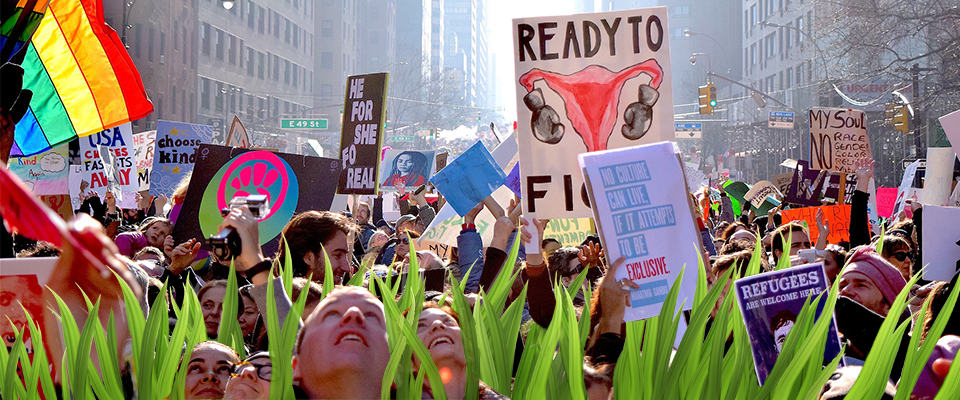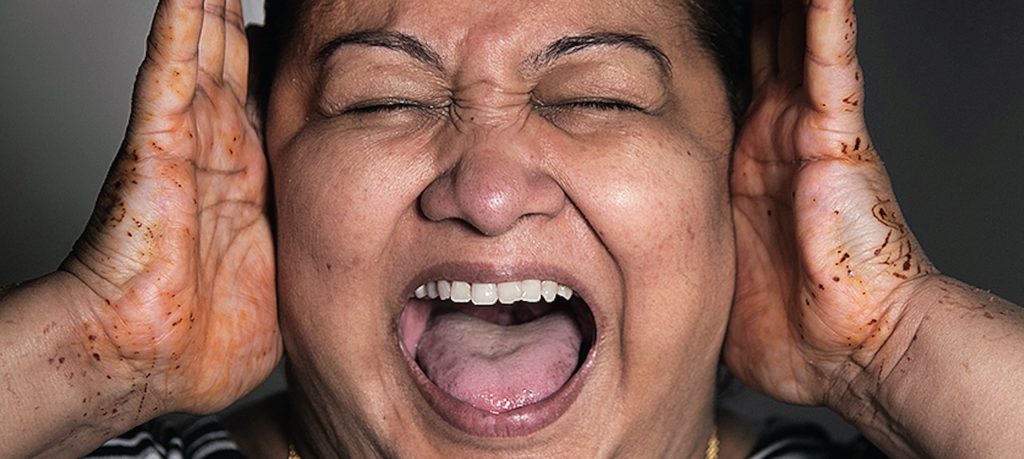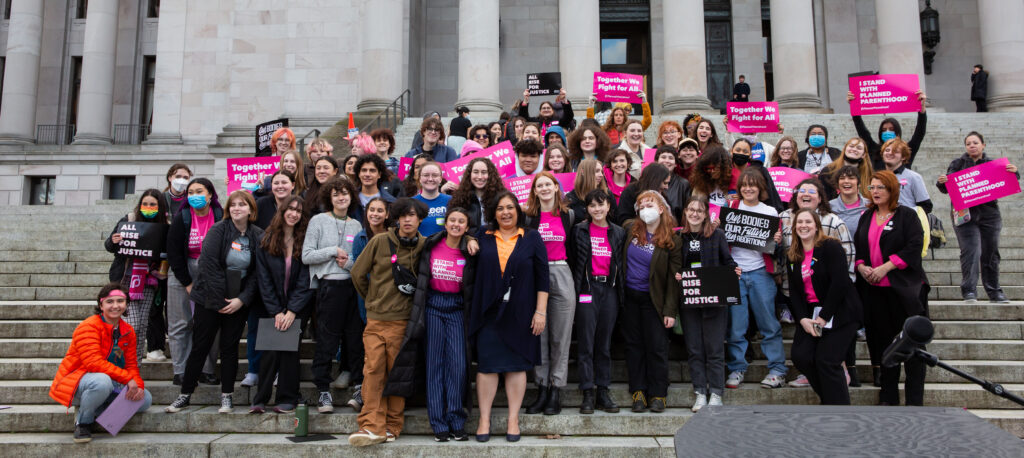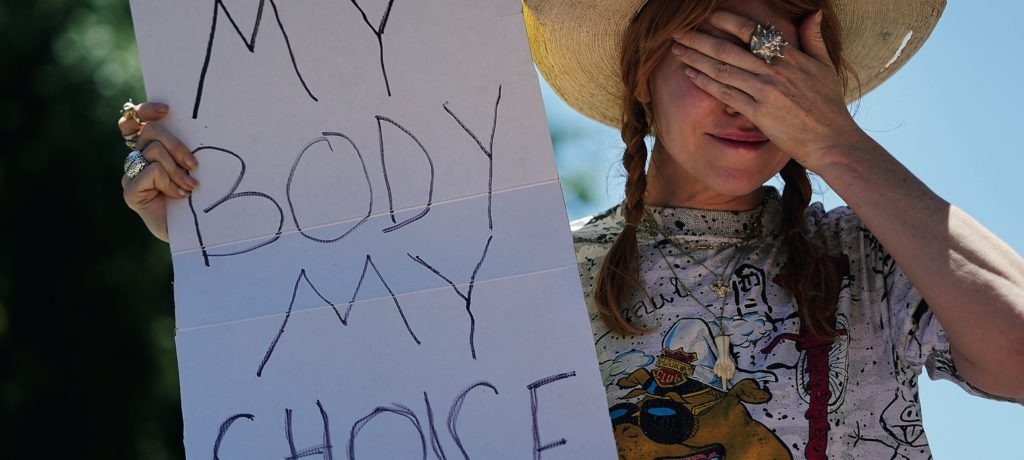Roe vs. Wade, the 1973 Supreme Court decision that recognized abortion access as a fundamental right, has been contested by conservative activists and legislators since it was passed. And while the decision remains popular 45 years later, with 71% of voters opposed to overturning Roe, Trump’s recent appointments to the Supreme Court indicate there may be an opening to do just that. The size of that opening, and the stakes involved, are being hotly debated.
Rachel Johnson-Farias, a graduate of Berkeley Law, is an influential voice in the conversation. She was named executive director of Berkeley Law’s Center on Reproductive Rights and Justice (CRRJ) last September, and for her, reproductive justice includes, but is far from limited to, protecting abortion rights. “The definition of reproductive justice that we work with at CRRJ,” she says, “is the ability to have a family or not and the ability to raise that family in safety, security, dignity, and respect.”

The CRRJ (pronounced “courage”), an interdisciplinary research center, brings together the big minds working on reproductive justice—and offers legislative and policy recommendations to address those issues. And while the center is quite small—it’s staffed by Johnson-Farias, a part-time assistant, and a number of law school volunteers—the goals are ambitious: reforming Medicare and welfare caps, reducing barriers women face in the workplace, and improving black women’s maternal health outcomes. In the United States, black women are 243% more likely to die in or just after childbirth than white women; their maternal mortality rate is comparable to that of women in Mexico or Uzbekistan.
For Johnson-Farias, a black mother who had two home births, these issues are personal. They’re also connected to the wide-ranging civil and human rights work she’s done with organizations like Justice Now, East Bay Community Law Center, and Esq. Apprentice, an organization she founded to help low-income youth of color become legal apprentices in California.
Earlier this month, we talked to Johnson-Farias about the future of abortion in America and whether ordinary citizens can have an impact. And when it comes to Roe v. Wade, Johnson-Farias says she remains optimistic, although she doesn’t have “much reason to be other than that’s who I am as a person.”
This interview has been edited for length and clarity.
***
You’ve spoken about abortion as personal liberty. That strikes me because “personal liberty” is a phrase traditionally used by conservatives. But expanding abortion access is widely considered a liberal position.
I was born in Georgia, where, when you talk about abortion, it can be a non-starter for a lot of people. What people do tend to understand, in my experience, is personal autonomy—the idea that you have a right to your body.
I don’t know how conservatives got ahold of being pro-life and the narrative they have crafted around it. We have to start changing the narrative around abortion. It’s a right to choose to have a child or not. It is absolutely also a matter of: Do you have the right to do with your body what you will? As women, the answer that we get from this Congress, especially as it relates to the ability to choose to have children and to use contraceptives, is a resounding no.
Last year, commentator Tomi Lahren said she was pro-choice because, as a conservative, she didn’t want the government in her business. Many on the right slammed her for the statement. Can you talk about the parties’ approaches to legislating abortion?
On congress.gov, you can see how many bills have been introduced in this legislative session, which just started, around abortion. There have been 31, so almost one a day, and 90% have been introduced by Republicans. They criminalize abortion.
There’s this idea that if you’re a woman who speaks for women or wants autonomy around your body, that that sets you up to be harmed.
In Georgia, Rep. Jody Hice introduced a resolution to fly the flag at half-staff for all the fetuses that have passed. [Editor’s note: This conversation took place in early Feb; as such, legislation has moved, and continues to move.]
Many Democratic bills are responsive, whereas it seems that Republicans are just like, “Let’s try this, let’s try this, let’s try this,” with the hope that eventually something will stick. The conservative machine has controlled the narrative around women’s choice.
Pro-choice people have to try different things. I hope CRRJ can be a place where we try stuff; I want for us to be a creative law center.
In a liberal place like Berkeley, one might imagine that abortion care is fairly affordable and fairly accessible. Is that the experience of the people and clinics you’re connected to—or are there unexpected ways in which abortion care could be more accessible even in Berkeley?
There’s the matter of actual access: getting to a physical place to have the procedure. That presents problems geographically in a lot of the South and in other places where centers are far apart. Then there are the mental barriers: the fear around seeking care.
When I told my mom I took this job in reproductive justice, the first thing she said was, “Are you gonna be safe?” There’s this idea that if you’re a woman who speaks for women or wants autonomy around your body, that that sets you up to be harmed. And that exists even in a [place like] Berkeley. Even in places where you might not have the physical barriers, there’s still—especially, I think, for low-income women—the idea that once you become pregnant, your community can shun you and hurt you, even if you don’t get the actual procedure done.
Going into 2020, I’ve been thinking a lot about how both sides will be working to persuade voters. Have you seen any minds flip on the issue of abortion?
In my family relationships, yes. Just because people who love me will listen to me and empathize. Empathy, I think, is what it takes.
As it relates to the public, I’ve gotten a few people to say they wouldn’t support conservative legislation [that would restrict abortion further] and I feel like there’s some victory in that. If I can’t get full-on support, I might say, “Can you understand why supporting this other option would harm people like me?” Everyone can have their own opinions, but sharing narratives around when those opinions harm people is when I’ve been most successful.
Ultimately, Roe vs. Wade is going to be reconsidered by judges and the public can’t lobby judges. What does that mean for concerned citizens who want to have a voice in or impact on the decision?
The courts are one thing, but the courts have been whittling away at Roe almost since it was decided.
If the courts rule to overturn Roe vs. Wade, Congress could adopt its language in legislation, talking about the undue burden of accessing abortion care and protecting a woman’s bodily autonomy. With this Congress, [a protective bill] would probably pass the House and not the Senate; it would definitely get a veto. But starting that legislative groundwork for the near future would be a great way for people to get involved.
That’s interesting. It sometimes feels like calling our Congressional representatives about this issue is a waste of time, because they’re not the ones who will rule on Roe. But, as you’re saying, these laws come up through the statehouses; they go through the legislative bodies to get to the judges. So our state representatives can have a big impact.
Every single day. You could make the argument that this should be a states’ rights issue and so the federal government shouldn’t dictate how states decide what to do when it comes to reproductive care. But at least 17 different states have put forth anti-choice legislation in this congressional session alone.
I wonder if Democrats aren’t introducing aggressive, protective legislation at the state level because they don’t want it to be challenged up to the Supreme Court, particularly with two new conservative judges. Meanwhile, conservatives are introducing outlandish statehouse legislation because they want it to get kicked up to the Supreme Court so Roe can get reconsidered.
Yes; [protective legislation] almost certainly would get challenged, and maybe in a way that Republicans would like. The bills introduced so far this year make me think that Democrats are in a largely defensive stance; it could be that they considered offense and decided, “Yeah, we don’t want to risk it.” But the Supreme Court will decide whether to effectively overturn Roe vs. Wade. Even by punting, they’ll give license to states to try all sorts of things and women will suffer. I do know it’s time for us to try something. Try anything, really.
What’s the biggest challenge in the work you do?
What I love about my job is that I get to live in strategyland. When you say “strategyland,” it sounds like it’s not rooted in reality, but I do get to dream about the law.
That’s what’s hard about movement work—we’re doing work that we might not realize the fruits of in our lifetime.
A lot of the work we do at CRRJ is supporting people on the front lines by providing strategies that they don’t have the time to think about.
When [you’re under financial pressure], the approach is always defensive; you don’t have time to step back and ask, “What would I do if I was really well-resourced and I had a lot of people to work on this?” Some of the work I do is to come up with ideas; that’s exciting to me.
The tough part is that so many of these ideas aren’t necessarily gonna go anywhere any time soon. That’s what’s hard about movement work in general—we’re doing work that we might not realize the fruits of in our lifetime.
But I have a daughter. I have a son. The world needs to be better for them. Even if I don’t see everything I dream about in reproductive justice realized personally, I get to envision and work toward that world.





















